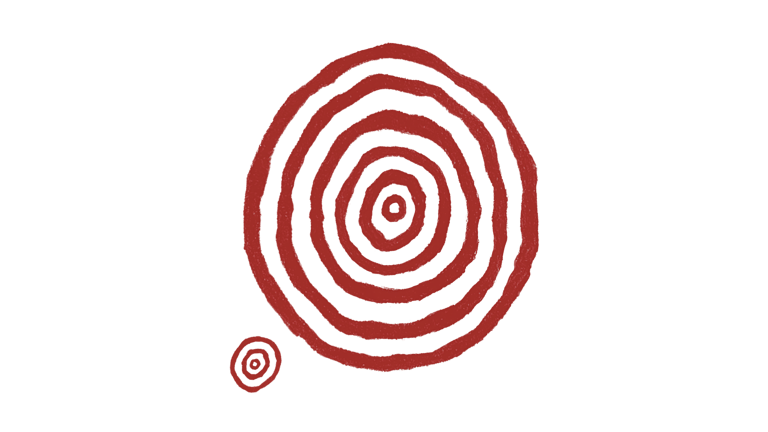Merken magazine
Razzia Explained: A mirror to the nation's struggles
A movie that penetrates the layers of Moroccan society, pulling back the curtain on reality in an experience of mental nudity. Cinema, after all, can sometimes be more real than real life! Through powerful narratives and poignant portrayals, the film unveils the consequences of societal constraints through stories of love, loss, and resilience.
CINEMASOCIETY
Meryem Harafi
8/10/2024
This poetry book is not just for me
I teach them to listen to the mountains,
To talk to them
To Imagine what’s beyond them.
What does the language matter…
If you strip their voices away?
What does the faith matter
If you take away their dreams?
What does the language matter
If you strip their voices away?
What does the language matter
If the mountains become deaf?
Razzia [raz·zia ˈrazēə], French, originates from the Arabic word غزوة (ghazwah, ghazāh), which means a sudden, forceful raid or attack, historically linked to plunder.
Following his provocative film Much Loved, which was banned after facing raging public opinion, Nabil Ayouch returns with a narrative that seeks to understand the roots of all the violence and ignorance of death threats and actor attacks, exploring Morocco's hidden layers of extremism and intolerance. Razzia penetrates the often unseen toxic layers of Moroccan society. By portraying the hidden realities that many people live and look at daily, but might not see. The film provides a rare and intimate glimpse into the societal undercurrents shaping today’s Morocco. It reflects and demonstrates director Nabil Ayouch's ability to see beyond the superficial layers and penetrate deep into reality to reveal what truly needs to be addressed and changed. He went back to the origin of raising such a population.
5 separate characters and stories were brought together by their shared struggles with societal challenges. From a young woman fighting against traditional norms to a man confronting a whole system of governing, the characters’ struggles make a layered critique of the nation's educational system, the marginalization of minorities, the yearning for individual freedom, and the Moroccan fragile hope for love.
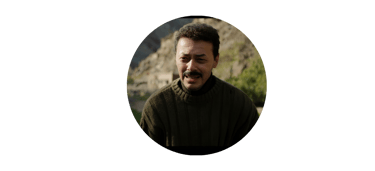

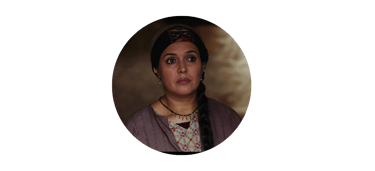

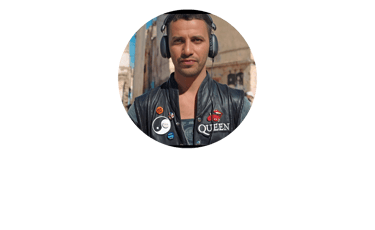

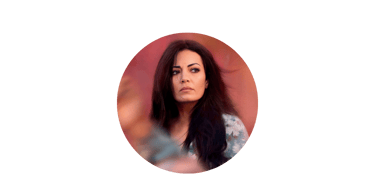

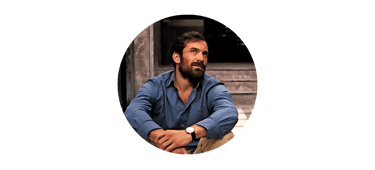

Abdallah
Amine Ennaji
Ytto
Saadia Ladib
Hakim
Abdelilah Rachid
Joe
Arieh Worthalter
Salima
Maryam Touzania
Education: A Portal to The Future
The film "Razzia" presents the consequences of Morocco's educational reforms by the Ministry of Education, highlighting the short and long-term effects on the nation's youth.
Before:
In the early scenes, the film depicts a healthy teaching environment where the students and the teacher engage in indoor and outdoor teaching sessions with a harmonious learning flow. Abdellah, the teacher, utilizes the students' native Amazigh language in hands-on teaching sessions about the mountains they’re walking on, creating a harmonious atmosphere filled with laughter and games, symbolizing how smoothly education is going.
The Ministry Reforms:
This idyllic image is brutally shattered by the arrival of Mr. Mahmoudi, an inspector sent by the Ministry of Education to enforce the new Educational reforms where the curriculum is based solely on Arabic. He dismisses Amazigh, the only language the little kids can comprehend, as a language, considers it rather ‘only a dialect’ and insists that as he put it “Arabic is the only ‘true’ language, the language of the holy Quran, the language that gathers ‘us’ and unites us as Muslims.” The teacher argues the difficulty of teaching in Arabic, but the inspector ignores his concerns, demanding adaptation.
Short-Term Consequences:
The film's director uses powerful scene juxtaposition to expose and illustrate the impact of these reforms. The results of this will soon show, in both the short term, as short as the next session with the students, and in the long term, after 33 years.
In terms of the short-term consequences, it’s expressed in the students' fight because one of them called the other ‘a Jew’ as an insult. The teacher asks the student who told him a Jew is an insult, and the student replies: “A Jew is dirty. They told me.” ‘Is that so? Who told you?” the teacher replied. “ Just people,” the student said.
Additionally and opposite to the early scenes, shortly after the visit of the inspector, we see the catastrophic consequences of these decisions and reforms in the next session in class. Abdellah is now teaching the same lessons in Arabic, a language they do not speak nor comprehend. The students’ excitement is replaced with an anxious silence, the laughter with confused faces, and the right fluent answers with mumbles of words they don’t understand. After many struggles, the teacher started translating shortly before he was interrupted by the inspector who took over the class and started making students repeat after him blindly. Abdellah is eventually overwhelmed, bursting out of class aching and crying, showcasing the emotional toll of this imposed change.
He is always there
He has transformed my science course
into an Islamic education course.
He explains history through religion,
Geography through religion.
He even gives religion itself another meaning.
He speaks to them in a language they don’t know.
They’re lost.
They repeat without understanding.
Long-Term Consequences:
The film juxtaposes the inspector’s arrival with scenes of protests in 2015, 33 years later. This reveals a young generation steeped in religious extremism, rejecting gender equality and yearning for Sharia law to rule. This juxtaposition underscores the long-term consequences of a flawed educational system. Later in the movie, we see other violent outrageous protests and riots led by young Moroccans who were attempted to be repressed by the government.
The film implicitly argues that the flawed educational system sowed the seeds of arrogance and illiteracy. The implementation of two time periods between 1982 and 2015 is to explain the role the educational and religious institutions play in the molding and shaping of individuals and societies in a country.
Michel Foucault's theory of discourse provides a framework for understanding this dynamic. It explains how institutions produce discourse to form power relations within a society. Institutions like schools and religious organizations create and enforce how people perceive themselves and their roles in society.
Education, therefore, is a fundamental pillar of nation-building. What we impart to children as educators shapes their future and, by extension, the future of the country. The act of educating and teaching is an act of nurturing the students and equipping them with the right tools to face life in the future. Only with those tools could they be good citizens who would serve themselves, their society, and their country, and that's how great societies are built.
If this chain is broken, the same as in the movie, then the result would be the same: a population that surrounds its whole existence around one thing, how to make a living, a population of uneducated and unequipped individuals lacking a deeper understanding of civic duties and rights. In relation to the movie, the Ministry of Education broke this chain by stopping the model educator that the country needed to develop, which might be intentional and politically charged.
The film's depiction of the broken educational system acts as a reminder that education should be a deliberate act of nurturing, with the intentional collective goal of what type of citizens we aim to create. By connecting educational objectives to develop well-informed, responsible citizens, we can better prepare future generations to participate in and contribute to societal development.
Individual Freedom: A Battle Against Societal Constraints
Individual freedom is discussed through an array of characters, each of whom must cope with societal constraints and a desire for personal expression.
Hakim, a talented musician, faces societal and religious pressure to abandon his passion. He is free to dream in an environment where dreaming too big is considered crazy. His father rejects his musical talent as a sin, and Hakim faces further symbolic constraints of freedom with his constant encounters with the young men with shaved heads each time he attempts to live up to his dreams. Hakim faces a suppressive pressure that was expressed in a scene of him beautifully singing in an empty theater with makeup on, the word ‘freedom’ tattooed on his shoulder, and a tear on his cheek.
Salima, a young woman, faces the psychological pressure imposed on her by a patriarchal society. As we see in the movie, her freedom to express her grief for her father is interrupted by a man imposing his way of Islamic belief on her and telling her how she should treat her father’s grave, on the way back home, she gets yelled at by another man shaming her for wearing a dress. As an act of resilience, she made her dress even shorter. Salima struggles with the basic human right of being oneself authentically, and she is rather expected to fit the definition society gives to a woman. Salima’s journey is a testament to her resilience as she fights to define her own self. This resilience climaxes in her rejecting her husband’s control and embracing her true self.
Ytto, too, confronts societal judgment and asserts her right to live life on her own terms. in a scene where Ytto asks her lover why he did not visit her the night before, he says that “people have started to talk,” and she replies with “That's my life and it's none of their business.” She proceeded to say that when her son Ilayss’s father died, nobody lifted a finger, but now they're telling her how to live her life. This shows how she claims her individual freedom unapologetically, and how society only interferes in your life to judge you and they mind their business when it's time to help you.
Marginalization: The language and religion of the marginalized
The film portrays the marginalization of various groups within Moroccan society. It highlights the struggles of the Amazigh and Jewish communities, who are silenced and excluded for their cultural and religious identities. The language and religion of the marginalized, Amazigh and Judaism, are seen as inferior to Arabic and Islam respectively, reflecting the dominant power structures at play.
Language is a source of social power and exclusion. Dismissing the primary school students' Amazigh language and replacing it with another language that they do not understand is an act of Marginalization from education. Amazigh communities face extra barriers in their education just because the country only considers Arabic-speaking students when setting the curriculum.
Religion is also a source of social exclusion. In the movie, the Jew Yuri Gabbay died and they could not find 10 Jews in Tangier to bury him, they couldn’t find a Minyan together. They had to fly his Nephew from France to bury him. This inability to find 10 Jews in Tangier for a proper burial underscores the dwindling Jewish community and its erasure from the collective memory. Also, Joe and Nejma’s relationship was unexpectedly deeply authentic and human. Despite that Nejma is a prostitute, she radiates a lively child-like energy. However, in spite of their genuine bond, once Nejma discovers that Joe is a Jew, she feels the need to escape.
The nationalist discourse in a country is responsible for this. It gives ‘the nation’ a definition. This definition includes and excludes communities and parties and expels them to the margins, they’re called subalterns. They are marginalized groups that are often voiceless or silenced within the dominant social order. It is difficult for them to be heard or to speak for themselves. They are excluded from the definition of the nation.
In the Moroccan context, Morocco is defined as an Arab Muslim country, so once you go beyond the limit of this definition, you find yourself in the margins.
Love: A Fragile Hope in a Troubled Society
The film presents the theme of love and its fragility in a society burdened by the political and social subjugation of the people. Abdellah's relationship with Ytto is a heartbreaking reminder of the constraints imposed by societal pressures and the sacrifices individuals must make to simply love.
Abdellah is torn between his revolt desire to educate and empower the next generation, the constraints imposed by educational reforms, and his love for Ytto. When eventually stopped by the government, he promised Ytto to come back for her and her son, but he never did. Because of his clashed hopes, he headed to Casablanca, a city so big that he would fly away, disappear, and be erased. He thinks it’s better for Ytto and everyone to forget him, he believes he can't fight for the students or Ytto, and his decision to leave reflects his despair and sense of powerlessness. He decided he had to be forgotten.
Ytto, on the other hand, embarks on a solitary journey to Casablanca, searching for her lover. She tattooed an olive tree for strength, and god’s eyes, two stars to guide and lighten her way. She beautifully sang to the same mountains he taught the kids to listen, talk to, and imagine what’s behind. She gave the mountains a voice after they became deaf. Her journey is a testament to her resilience and her enduring hope for a love that transcends the limitations of society. However, she did not find him and eventually stopped looking.
Razzia leaves the audience with a sense of melancholy and a desperate hope for change. It paints a bleak picture of the steps of creating a flawed society, which is at the same time a call to action, urging individuals and institutions to work towards a future where education empowers, and freedom is celebrated. As exemplified by this film, Cinema has the power to challenge and reshape societal norms, and surely, cinema can change the world.
